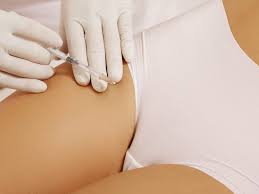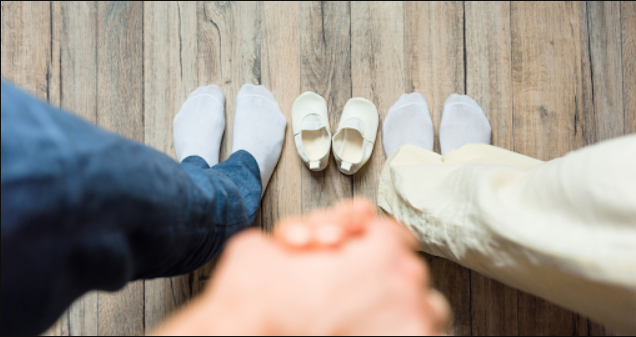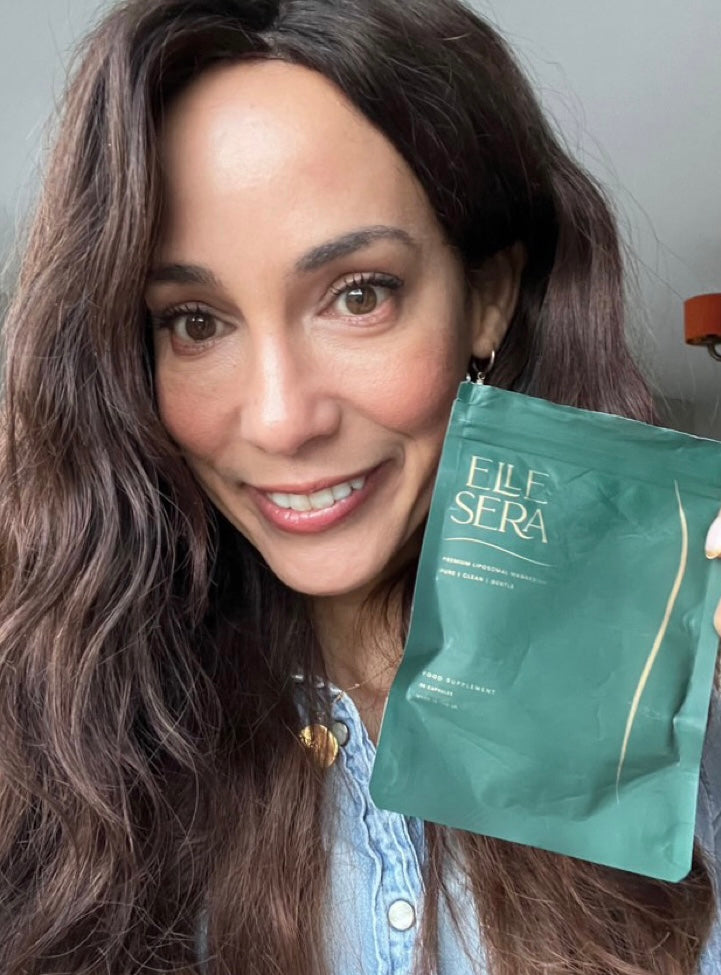Ok, so I spoke to a customer this week who was taking a calcium supplement for her bone health.
You can understand why - calcium is great for bones. Fact.
But if you have followed me for a while, you’ll know how I harp on about how all supplements are not made the same and when I looked into this dreadful, but well-marketed concoction - I had to explain to her just how and why she was wasting her time and money.
So while I’m in favour of calcium supplementation you need to know the following:
- how to take it,
- when to take it,
- how much to take,
- what you need to take with it and
- what the potential side effects could be.
Why should you care about calcium?
When calcium intake is insufficient, your body will remove even more calcium from your bones, making them weak and brittle. This can result in osteoporosis.
Since women are at a higher risk of osteoporosis, many doctors recommend that they take calcium supplements, especially after reaching menopause.
The customer I was speaking to was taking was Calcium carbonate - which is fine. It’s very inexpensive and can be really effective- but she wasn’t taking an effective dose and she had no idea of what she needed to be taking with it.
You’ll often hear me say the devil is in the dosage and it absolutely is - especially concerning calcium. Too little will do nothing, too much can do more harm than good.
Diet and Calcium

You absolutely can be getting enough calcium from your diet. Calcium is an essential nutrient and your body doesn’t produce it. You can find it in a variety of foods but often people aren’t eating enough to top up their levels adequately.
- Dairy products, such as cheese, milk and yogurt
- Dark green leafy vegetables, such as broccoli, spinach, kale, bok choy and greens
- Fish with edible soft bones, such as sardines and canned salmon
- Oranges, almonds, chia seeds
Who should consider calcium supplements?
But even if you eat a healthy, balanced diet (whatever that is?), you may find it difficult to get enough calcium if you:
- Follow a vegan diet
- Are a Menopausal lady
- Pregnant lady
- Have lactose intolerance and limit dairy products
- Consume large amounts of protein or sodium, which can cause your body to excrete more calcium
- Are on certain medications
- Have certain bowel or digestive diseases that decrease your ability to absorb calcium, such as inflammatory bowel disease or celiac disease
In these situations, calcium supplements can help you meet your calcium requirements.
This is just a side note worth mentioning - many people take calcium if they suffer from heartburn.
Why? Because the calcium dries up the acidity in the stomach. But over time - this will end up causing you MORE heartburn.
Why does this happen? Because the less acid in your stomach you have, means your stomach can’t create that signal to the value in the stomach to close, which can cause acid reflux or GERD - (gastroesophageal relax disease)
If you are experiencing heartburn, acid reflux or GERD - you might be better taking Apple Cider Vinegar - or HCL (Hydrochloric acid)
Calcium needs acidity to be absorbed, so if your stomach doesn’t have the correct amount acidity - it won’t be absorbing.
Anyway, before you rush out and buy a supplement…you need to keep reading on…
The devil is in the dosage

I’ve seen ladies taking really high doses of calcium carbonate, obviously thinking more is better and this will be amazing for their bone density - let me tell you, this does not increase bone density. Too much will actually have the opposite effect.
Too much calcium in your blood can weaken your bones, create kidney stones, and interfere with how your heart and brain work.
https://www.ncbi.nlm.nih.gov/pmc/articles/PMC3820054/
Dosages
You need to be careful you aren’t exceeding 2500mg - you also need to make sure you aren’t intaking less than 1000mg.
Women in their 20s-50s I would recommend 1000mg
Over 50s women can have around 1500 mg and no more than to 2500mg a day.
Like I said, your body must be able to absorb the calcium for it to be effective. You need adequate HCL levels (stomach acid) to absorb calcium - but by taking it you are actually reducing it - so it’s a double edge sword. This is why it is critical to get the balance right, so you also don’t want to overload your system.
All varieties of calcium supplements will be absorbed more effectively when taken in smaller doses. I would recommend taking no more than 500mg at a time and try and take it at meal times when your stomach acid is working away. Try and space your dosage out throughout the day if you can.
What happens if you are exceeding your calcium intake?
By taking too much calcium there is strong evidence to suggest it increases risk of heart attack and it lowers thyroid function and it’s ability to utilise T3. I know many ladies have issues with their thyroid - so you should be aware of this.
Like previously stated it can weaken your bones and cause kidney stones.
Side effects of calcium carbonate can also include:
1. Loss of appetite
2. Constipation
3. Gas
4. Nausea
5. Vomiting
6. A decrease in hydrochloric acid (HCL)
Another point to note…
Calcium can only reach its full bone-building potential if your body has enough vitamin D. Calcium and vitamin D work together synergistically to protect your bones—calcium helps build and maintain bones, while vitamin D helps your body effectively absorb calcium. So even if you’re taking in enough calcium, it could be going to waste if you’re deficient in vitamin D.
Again I would suggest supplementing Vitamin D + K2 and taking around 4000mg per day. By not having a good level of vitamin D in your system - this can lead to calcification - which is too much calcium in the blood.
Contraindications to calcium carbonate
If you have ever suffered with Kidney stones - do not take it. Or Hypercalcemia - which is too much calcium in the blood, do not take it.
Calcification of you blood is not something you want - symptoms of this include - increased urination - are you getting up in the night more frequently? Or suffering with fatigue, headaches, or abdominal pain?
You may have relatives who are taking massive doses of calcium. They could be already suffering with calcification and they are putting even more into their blood thinking that it will prevent bone loss, when it could actually be creating other issues. Worth mentioning it to them if they are suffering with the above symptoms.
Interactions
Calcium can also interact with 210 drugs on the market, so again, you need to check your medications. Or if you do have elderly relatives who might be on lots of other medications for other ailments and taking calcium carbonate on top thinking it’s great for their bones - they could be causing plenty of other issues.
So that’s the the 411 on calcium but what else could you do to keep your bones healthy and strong especially during the menopause?
1) Diet, as previously stated.
2) Weight training - THE ONE NO ONE DOES - BUT WILL YEILD THE BEST RESULTS

A combination of age-related changes, inactivity, and inadequate nutrition conspire to gradually steal bone mass, at the rate of 1% per year after age 40. As bones grow more fragile and susceptible to fracture, they are more likely to break after even a minor fall or a far less obvious stress, such as bending over to tie a shoelace.
I bang on about this on instagram all the time because numerous studies have shown that strength training can play a pivotal role in slowing bone loss, and several show it can even build bone.
This is tremendously useful to help offset age-related decline in your bone mass. Activities that put stress on bones can nudge bone-forming cells into action. No amount of Zumba or aerobics will cut it. That stress comes from the tugging and pushing on bone that occur during strength training. The result is stronger, denser bones.
And strength training with weights, in particular, has far more bone benefits than those offered by aerobic weight-bearing exercise. It targets bones of the hips, spine, and wrists, which are the sites most likely to fracture. What's more, resistance workouts — particularly those that include moves emphasising power and balance — enhance strength and stability. Maybe it’s time to join Crossfit?
3) Adequate protein in take

Protein is one of the building blocks of bone. While most people get plenty of protein in their diets, some do not. I especially wouldn’t advise a vegan diet to any female over 50, unless of course it’s for ethical reasons. You need to make sure diet includes lean sources of protein, such as eggs, lentils, white-meat poultry, lean beef, dairy, fish, shellfish and soy.
4) Maintain an appropriate body weight.
If you are underweight this can increase the chance of bone loss and fractures. While being overweight now is known to increase the risk of fractures in your arm and wrist. As such, keeping body weight in check is good for bones just as it is for health in general.



